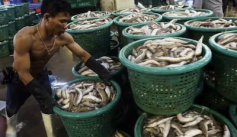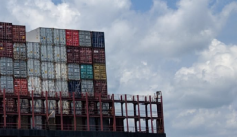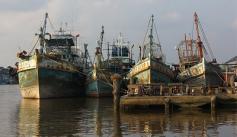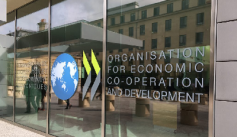Blog: Forced Labor
July 21, 2021
Seafood Working Group Tackles Forced Labor and Environmental Abuses in Asia and the Pacific
August 5, 2020
Improving Customs and Border Protection (CBP) Communications with Stakeholders Must Be A Two-Way Channel
June 26, 2020
Forced Child Labor in Cocoa; Twenty Years of Failure
July 25, 2019
Are Amazon, Walmart, and eBay’s online 'marketplaces' providing a refuge for goods made with forced labor?
January 31, 2019
Put Workers at the Helm of Social Sustainability in Seafood
December 23, 2017
Crushing Debt Bondage Poses Forced Labor Risk for U.S. Port Truckers
November 21, 2017
Time to Unleash the Power of the U.S National Contact Point
September 26, 2017
Pages
Browse blog by issue
- Child Labor (223)
- Forced Labor (35)
- Gender-Based Violence and Harassment (102)
- Health & Safety (38)
- Living Wage (18)
- 1 of 2
- next ›
Browse blog by country
- Bangladesh (39)
- Cambodia (3)
- Colombia (2)
- Cote d’Ivoire (7)
- Ghana (5)
- 1 of 4
- next ›
Blog archive
- March 2025 (2)
- February 2025 (1)
- October 2024 (1)
- August 2024 (1)
- June 2024 (1)
- March 2024 (1)
- February 2024 (1)
- September 2023 (2)
- March 2023 (2)
- February 2023 (1)
- 1 of 17
- next ›







